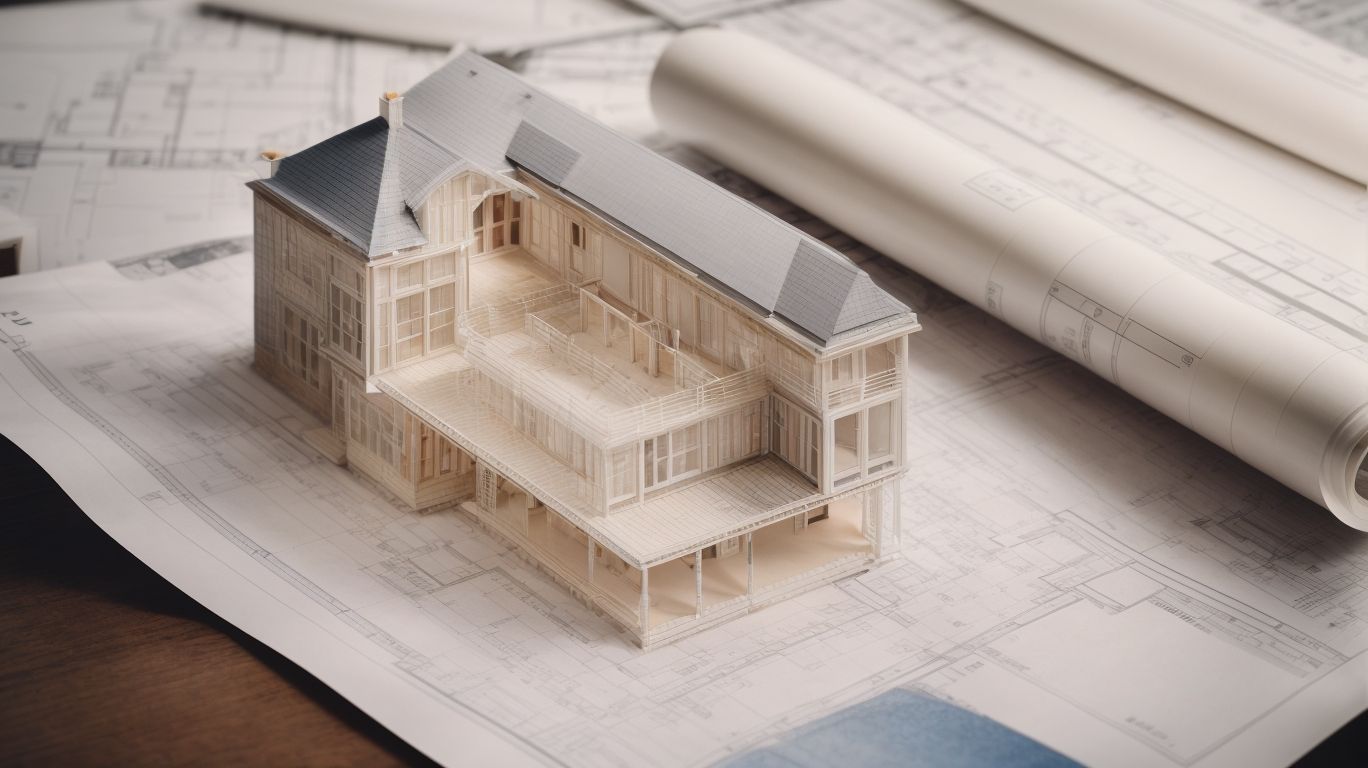
What to Look for When Hiring a Structural Engineer in SF
Are you in need of a structural engineer but don’t know where to start? Look no further! In this comprehensive guide, we will cover everything you need to know about hiring a structural engineer in San Francisco.
From understanding the qualifications and responsibilities of a structural engineer to finding the right professional for your project, we’ve got you covered. Whether you’re building a new structure or evaluating an existing one, this article will help you navigate the process of finding and hiring the perfect structural engineer for your needs.
What Is a Structural Engineer?
A structural engineer is a professional responsible for the design, analysis, and construction of various structures, ensuring their safety, integrity, and compliance with seismic codes and regulations.
Structural engineers play a crucial role in project management. They work closely with architects, contractors, and other professionals to ensure that the structural elements of a building are sound.
One of their key areas of expertise is seismic analysis. This allows them to assess the potential impact of earthquakes on structures and implement measures to enhance their seismic resistance.
In addition, structural engineers have a deep understanding of construction materials and techniques. This enables them to select the most suitable materials and methods for each project, striking a balance between structural integrity and cost-effectiveness.
Why Do You Need a Structural Engineer?
The expertise of a structural engineer is essential for ensuring the safe and effective design, analysis, and management of construction projects, especially in areas prone to seismic activity.
Structural engineers are responsible for incorporating safety standards and regulations into the design and assessment of buildings and infrastructure. This ensures that structures can withstand seismic events. They also work closely with architects, contractors, and other stakeholders during project implementation to maintain structural integrity. Their expertise in risk assessment allows for the identification and mitigation of potential hazards, ultimately enhancing the safety and resilience of the built environment.
What Are the Qualifications of a Structural Engineer?
The qualifications of a structural engineer in San Francisco typically include a combination of education, experience, professional licensure, and certifications, ensuring their expertise and competence in the field.
A minimum bachelor’s degree in civil or structural engineering is generally required to become a structural engineer. Many employers prefer candidates with a master’s degree for advanced positions.
Relevant work experience in structural design and analysis is highly valued. This often requires a minimum of 4 years in the field. Professional licensure through the completion of the Fundamentals of Engineering (FE) exam and the Principles and Practice of Engineering (PE) exam is essential.
Certifications such as the Structural Engineering Professional (SE) certification further demonstrate proficiency and expertise in the discipline.
Education and Training
The education and training of a structural engineer encompass a strong foundation in engineering principles, advanced coursework in structural analysis, and proficiency in industry-standard engineering software such as AutoCAD and Revit.
In addition to a bachelor’s degree in civil engineering or a related field, structural engineers often pursue advanced degrees or specialized training to develop expertise in specific areas such as seismic design, steel structures, or concrete construction.
This specialized training provides a deeper understanding of complex engineering concepts and equips them with the skills needed to use sophisticated software tools for structural modeling, finite element analysis, and building information modeling (BIM) applications.
Proficiency in these engineering software programs is essential for creating accurate and efficient designs, conducting structural simulations, and collaborating effectively with architects, contractors, and other stakeholders throughout the construction process.
Licenses and Certifications
Licensed and certified structural engineers demonstrate their professional competence and adherence to industry standards, ensuring their eligibility to oversee and approve structural designs and projects.
These credentials are paramount in upholding the safety and integrity of buildings and infrastructures. They serve as a testament to the engineer’s proficiency in analyzing structural integrity, seismic considerations, and materials selection.
A professional license and relevant certifications provide assurance to clients and regulatory bodies that the engineer possesses the necessary qualifications to handle complex structural challenges and ensure compliance with building codes and regulations. This validation of expertise is crucial in maintaining the trust and confidence of stakeholders in the engineering profession.
Experience and Specializations
A comprehensive project portfolio, backed by references and referrals, showcases a structural engineer’s practical experience, expertise in structural calculations, and successful delivery of cost-effective and sustainable solutions.
This extensive experience enables structural engineers to approach new projects with a deep understanding of various structural complexities. It also allows them to tailor their solutions according to the unique requirements of each project, ensuring efficient and sustainable designs.
Client references serve as a testament to the engineer’s ability to communicate effectively, manage projects, and deliver on client expectations, creating a sense of trust and satisfaction in their work.
What Are the Responsibilities of a Structural Engineer?
The responsibilities of a structural engineer encompass the design, inspection, and management of construction projects, focusing on risk assessment, environmental impact, and ensuring structural integrity and safety.
Structural engineers play a critical role in analyzing the structural stability of buildings and bridges. They also assess the potential environmental impact of construction projects and ensure that designs meet safety standards and building codes.
Aside from their technical expertise, structural engineers are also involved in project management. This includes coordinating with various stakeholders to ensure the successful completion of construction projects within specified timelines and budgets.
The responsibilities of structural engineers are multifaceted. They are also responsible for evaluating the long-term durability and sustainability of structures. This involves considering factors such as material selection, seismic resilience, and environmental considerations.
Design and Analysis of Structures
Structural engineers are tasked with the comprehensive design and analysis of structures, employing technical expertise, advanced engineering software, and sustainable practices to ensure structural integrity and safety.
They are responsible for performing structural calculations to determine load-bearing capacity and assess the potential impact of environmental factors. They also play a crucial role in integrating sustainability considerations into the design process, ensuring that structures are environmentally friendly and energy-efficient.
Collaborating with architects and construction teams, structural engineers develop innovative solutions while adhering to building codes and regulations. Their expertise is essential in creating durable, resilient, and cost-effective structures.
Inspection and Evaluation of Existing Structures
Conducting thorough inspections, obtaining necessary permits, and engaging in peer reviews are essential responsibilities of structural engineers to ensure the safety and compliance of existing structures with industry standards and regulations.
Structural engineering tasks demand a keen eye for detail and a thorough understanding of structural integrity. Obtaining necessary permits involves navigating through intricate paperwork and regulations to ensure compliance with local building codes.
Peer reviews offer valuable insights and critical analysis from fellow professionals in the field, further strengthening the quality and safety of proposed modifications or repairs. Rigorous inspection processes are also crucial in identifying and addressing potential issues before they pose a threat to the building’s structural stability and safety.
For structural engineers, being meticulous and methodical in their approach is essential in upholding the integrity and safety of existing structures.
Providing Recommendations and Solutions
Structural engineers offer informed recommendations and innovative solutions, leveraging their problem-solving skills and decision-making abilities to address complex structural challenges and ensure optimal project outcomes.
Structural engineers have a crucial role in evaluating the stability of buildings and infrastructure, selecting appropriate materials, and creating efficient and secure structures. They work closely with architects and construction teams to develop cost-effective, sustainable, and visually appealing designs. Their skills in data analysis, risk assessment, and compliance with industry standards enable them to deliver projects that can withstand environmental factors and meet the needs of the community.
Collaboration with Other Professionals
Collaborating with architects, contractors, and other professionals, structural engineers facilitate effective team collaboration, clear communication, and expert consultation to ensure seamless integration of structural elements within complex projects.
This cooperation is vital for ensuring that the design and construction process align with safety standards, budgetary constraints, and aesthetic considerations.
By working closely with architects, structural engineers can provide valuable input on the feasibility and structural implications of various design choices. Their expertise enables them to contribute solutions that optimize the overall structural integrity and support the architectural vision.
Effective collaboration and communication with contractors further ensure that the implemented designs comply with building codes and regulations, while remaining within project timelines and resource allocations. This collective effort is essential for delivering high-quality and enduring structures that meet the needs and expectations of all stakeholders involved.
What Are the Important Factors to Consider When Hiring a Structural Engineer?
When hiring a structural engineer, it is crucial to consider factors such as reputation, client references, insurance coverage, the ability to deliver cost-effective solutions, and adherence to project timelines and deadlines.
Experience and a proven track record are key indicators of a structural engineer’s reputation. Client references provide essential insight into their previous projects and customer satisfaction.
It’s also important to ensure that the engineer carries professional liability insurance to mitigate potential risks. Cost-effectiveness can be demonstrated through transparent pricing and efficient project management. A commitment to project timelines reflects reliability and dedication to delivering quality work within agreed-upon schedules.
Insurance and Liability Coverage
Verifying insurance coverage, assessing risk assessment practices, and ensuring compliance with necessary permits are essential considerations when hiring a structural engineer to mitigate potential liabilities and project risks.
Insurance coverage and risk assessment are essential for protecting both the hiring organization and structural engineer from financial losses and legal issues. Insurance helps safeguard against accidents or damages, while risk assessment allows for proactive management of potential project risks.
In addition, ensuring permit compliance is crucial for legal and safety reasons. It demonstrates a commitment to operational transparency and adherence to industry regulations. By prioritizing these factors in the hiring process, both parties can navigate potential challenges with greater confidence and security.
Communication and Availability
Clear communication, collaborative capabilities, and accessible consultation are crucial attributes to seek in a structural engineer, ensuring effective collaboration and consistent availability throughout the project duration.
These qualities play a pivotal role in streamlining project workflows, enhancing problem-solving, and fostering a cohesive team environment.
A structural engineer who excels in communication can effectively convey complex ideas, resulting in more efficient decision-making and problem-solving.
Accessibility ensures that the engineer can promptly address any project-related concerns and actively participate in team discussions, thus contributing to the overall success of the project.
Cost and Budget
Evaluating cost-effective solutions, adherence to project timelines, and alignment with budgetary constraints are essential considerations when hiring a structural engineer, ensuring efficient project delivery and financial prudence.
It is imperative for businesses to prioritize cost-effective solutions, as this not only ensures financial stability but also fosters a culture of efficient resource utilization.
A structural engineer who can adhere to project timelines is crucial for seamless project execution, avoiding costly delays and potential setbacks.
Aligning with budgetary constraints protects the overall financial health of the project, enabling resources to be allocated effectively and promoting a sound investment strategy.
How to Find and Hire a Structural Engineer in San Francisco?
Finding and hiring a proficient structural engineer in San Francisco can be achieved through online search platforms, seeking referrals, engaging professional organizations, and conducting thorough interview and selection processes.
When searching for potential candidates, online platforms like LinkedIn, Indeed, or professional association websites can be valuable resources. Additionally, seeking referrals from colleagues or friends with experience in construction or engineering can provide valuable insights.
Engaging with professional organizations, such as the Structural Engineers Association, can also connect you with qualified professionals. During the interview process, it’s crucial to assess the candidate’s experience, qualifications, and communication skills to ensure they meet the specific requirements of your project.
Online Search and Directories
Utilizing online search platforms and directories allows access to a diverse pool of structural engineers in San Francisco, enabling evaluation of their project portfolios and communication capabilities before making a selection.
This approach not only streamlines the search process, but it also provides the opportunity to assess the quality and relevance of past projects. This is crucial for ensuring the suitability of a potential candidate.
In addition, by reviewing the communication skills demonstrated in their portfolio, employers can gauge an engineer’s ability to convey complex ideas and collaborate effectively within a team. These platforms play a pivotal role in making informed decisions that align with specific project requirements and organizational needs, ultimately leading to successful partnerships between employers and engineers.
Referrals and Recommendations
Seeking referrals and recommendations from trusted sources and evaluating project management references can aid in identifying reputable and capable structural engineers in San Francisco for potential engagement.
This direct approach allows hiring managers to tap into the network of industry professionals and gain insight into the performance and expertise of structural engineers.
Building a team with strong project management capabilities is crucial for ensuring the successful completion of construction projects, and references provide valuable information in this regard. By leveraging referrals and references, companies can make informed decisions that contribute to the overall efficiency and quality of their construction projects.
Professional Organizations and Networks
Engaging with professional organizations and networks in San Francisco can provide access to certified and collaborative structural engineers, offering assurance of their professional competence and collaborative capabilities.
Finding the right fit for your project is made easier with a network of professional organizations. This allows you to tap into a pool of expertise and experience. These networks also facilitate the sharing of best practices and innovative solutions, ensuring that your project benefits from the latest industry insights. By involving these organizations in the hiring process, you can feel confident that you are working with competent professionals who are well-versed in the specific needs of your project.
Interview and Selection Process
Conducting thorough interviews and selection processes allows for the assessment of a structural engineer’s capabilities, consultation approach, and alignment with project timelines, enabling informed hiring decisions in San Francisco.
This process is crucial for evaluating a candidate’s technical skills, problem-solving abilities, and collaborative mindset. Employers in San Francisco can gain valuable insights into a candidate’s experience, communication style, and potential contribution to the team dynamics.
It ensures that the selected individual not only possesses the required expertise but also fits seamlessly into the organizational culture and goals. The interview and selection process serve as a fundamental mechanism to identify the right talent that can positively impact the company’s projects and growth plans.




No Comments